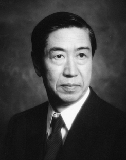 ASQ and others have announced the passing of a quality legend, Dr. Genichi Taguchi, in Japan, at age 88.
ASQ and others have announced the passing of a quality legend, Dr. Genichi Taguchi, in Japan, at age 88.
Dr. Taguchi is known for, among other methods, the Taguchi Loss Function and other statistical quality improvement methods. He was awarded the Deming Prize in 1960, among other honors.
The Taguchi Loss Function (illustrated) taught us that all quality inside of specification is not equal. The old view was that anything “in spec” was equally OK, but Taguchi taught that quality and cost suffer as we get further from the design target. This is an important core concept in quality improvement, which drives us to work toward perfection in the Lean approach.
My friend Ron Pereria has done a good job of writing about Taguchi's work, as has Peter Abilla. Today, we mourn a man who made a great contribution to quality improvement.
What do you think? Please scroll down (or click) to post a comment. Or please share the post with your thoughts on LinkedIn – and follow me or connect with me there.
Did you like this post? Make sure you don't miss a post or podcast — Subscribe to get notified about posts via email daily or weekly.
Check out my latest book, The Mistakes That Make Us: Cultivating a Culture of Learning and Innovation:










Taguchi Loss Function is one of the best concepts to teach to an organization when they are transforming from the “conventional” way toward the “better” way. When you can finally wrap your mind around the idea that tolerance is irrelevant, and a nothing more than a 20th century invention, you can really start to get somewhere. I believe it’s a key paradigm that needs to change for an organization to “get it”. Quality is not about meeting spec, it’s about achieving the best possible outcome (minimal loss) for your customers. Taguchi thought about it in even bigger terms stating that the goal of a business is to minimize loss to society. What kind of country would we be if that was the goal we all strove to achieve?
Yes, thanks for highlighting his use of the term “loss to society.”
Great loss, who have not used your great tool to solve statistical design of experiments?, who has not used his statistical methods that revolutionized applied statistics in organizations?, the great thinkers and philosophers of Lean in our century XXI.